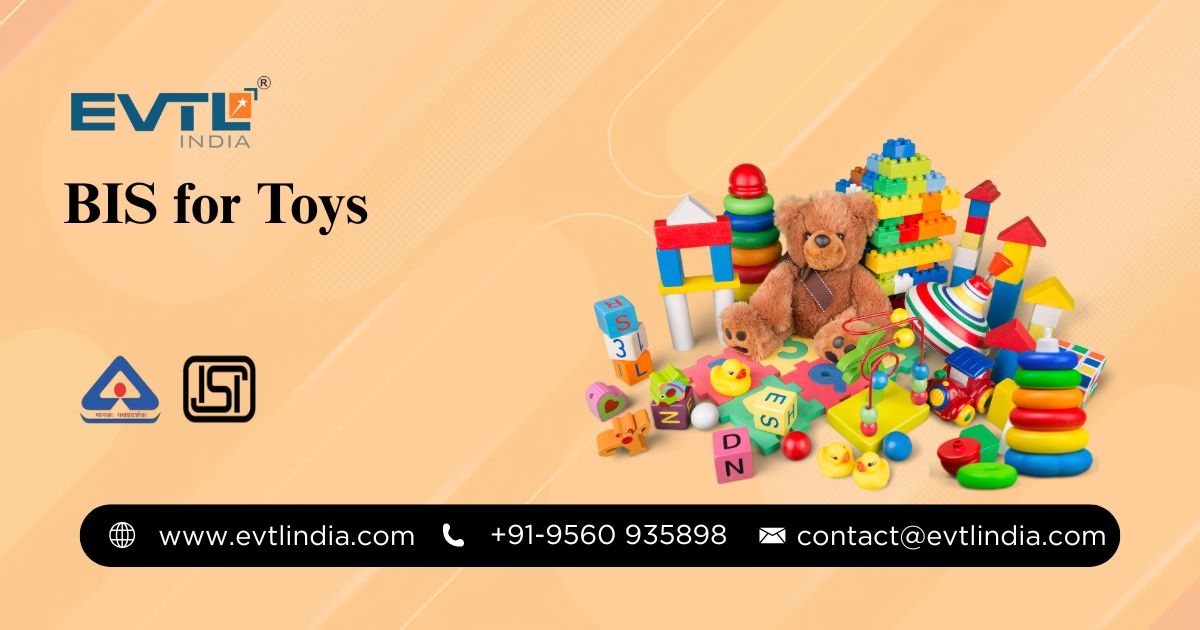Toys are not just about fun anymore—they are also about safety, trust, and compliance. If you're a toy manufacturer, importer, or distributor in India, you can no longer ignore the BIS certification for toys. Whether you're producing action figures, plush toys, or educational play kits, getting your product BIS certified is now a mandatory step before entering the Indian market.
India’s toy industry is undergoing a major transformation. In recent years, the government has become increasingly strict about the quality and safety of toys sold in the country. This has led to the compulsory implementation of BIS for toys, under the Quality Control Order (QCO) notified by the Department for Promotion of Industry and Internal Trade (DPIIT).
🧸 Why Has BIS for Toys Become Mandatory?
Let’s start with a powerful fact: toys without proper certification can now be seized or banned from sale in India.
The mandatory BIS implementation is not just a bureaucratic formality—it directly impacts the lives of millions of children. Low-quality toys have been known to cause choking hazards, exposure to toxic chemicals, and mechanical injuries. In response to growing concerns, BIS has introduced specific Indian Standards for both electrical and non-electrical toys.
The goal is clear: only safe, durable, and chemically non-toxic toys should reach the hands of Indian children.
📘 Indian Standards Applicable to Toys
To comply with ISI certification for toys, manufacturers must align with the following Indian Standards:
-
IS 9873 (Part 1): 2019 – Safety aspects related to mechanical and physical properties
-
IS 15644:2006 – For electric toys and their safety requirements
-
IS 9873 (Part 2 to 9) – Various aspects like flammability, migration of elements, etc.
These standards are harmonized with international norms like ISO and EN, ensuring that Indian-certified toys meet global expectations.
🔍 ISI Mark for Toys – Why It Matters
When a product carries the ISI mark for toys, it signals that the toy complies with Indian safety standards, has passed rigorous testing, and has been manufactured in a BIS-approved facility.
This mark has become a symbol of safety and credibility in the Indian market. Retailers prefer ISI-marked toys because it lowers their compliance risks. Parents look for the mark as a guarantee that their child will not be exposed to harmful substances.
Having the ISI certification for toys also boosts your brand reputation, both in domestic and export markets.
🏭 BIS Certification Process for Toy Manufacturers
The certification process is systematic and designed to ensure end-to-end product compliance. Here’s a simplified flow:
-
Application Submission – Manufacturer applies via the BIS portal.
-
Product Testing – Samples are sent to a BIS-recognized laboratory.
-
Factory Audit – BIS officers inspect the production unit to ensure quality control systems.
-
Grant of License – Upon successful compliance, BIS grants the license to use the ISI mark.
The certification is not a one-time event; it involves ongoing surveillance and periodic testing, which ensures that the quality remains consistent.
🌏 Domestic vs Foreign Manufacturers
Both domestic and foreign manufacturers are required to obtain BIS certification. However, foreign entities must appoint an Authorized Indian Representative (AIR) to handle local documentation, testing, and factory audits. The process is slightly more time-intensive for foreign players due to logistics and coordination.
🧑💼 Role of BIS Consultant for Toys
The certification journey can be technical, lengthy, and often confusing for newcomers. That’s where a BIS consultant for toys becomes crucial.
A qualified consultant helps in:
-
Selecting applicable standards for your specific toy type
-
Preparing documentation and quality manuals
-
Coordinating with BIS labs for testing
-
Managing the audit and post-audit compliance
-
Ensuring timely renewals and surveillance
Engaging a consultant not only reduces the chances of rejection but also saves time, cost, and effort in the long run.
🚫 Non-Compliance? Here’s the Cost.
Failing to comply with BIS norms can lead to:
-
Heavy penalties under the BIS Act
-
Seizure or destruction of uncertified products
-
Market withdrawal orders
-
Long-term brand reputation damage
In today’s strict regulatory environment, non-compliance is simply not an option for serious businesses.
📈 BIS for Toys – A Boon for Indian Manufacturers
With the QCO in place, Indian toy makers now have a clear edge over cheap, substandard imports. The shift to quality-oriented manufacturing has:
-
Boosted the credibility of Indian brands
-
Enhanced export potential
-
Generated consumer trust and loyalty
This aligns perfectly with the government’s “Make in India” mission and also paves the way for Indian toys to reach global shelves.
✨ Conclusion
EVTL India is one of the leading BIS Consultant in India, helping manufacturers obtain their BIS licences hassle-free. Instead of seeing BIS certification as a hurdle, manufacturers should treat it as an opportunity to grow and innovate. Getting your toys BIS certified is not just a matter of legality—it’s a powerful statement of trust, safety, and quality.
In the fast-growing toy market, standing out requires more than catchy designs or bright colors—it demands certified safety. That’s why forward-looking businesses are already making ISI-marked toys their default standard.


